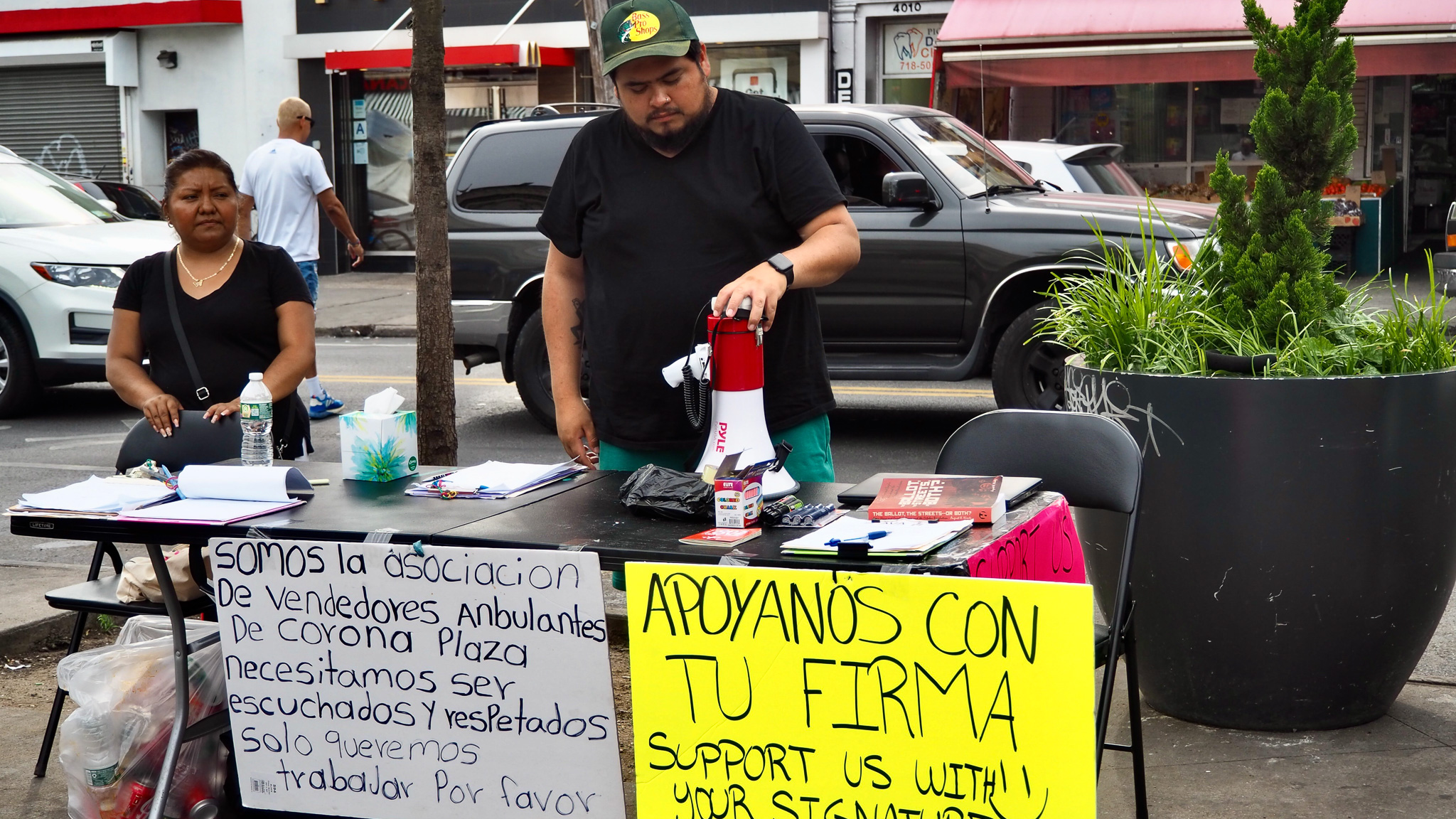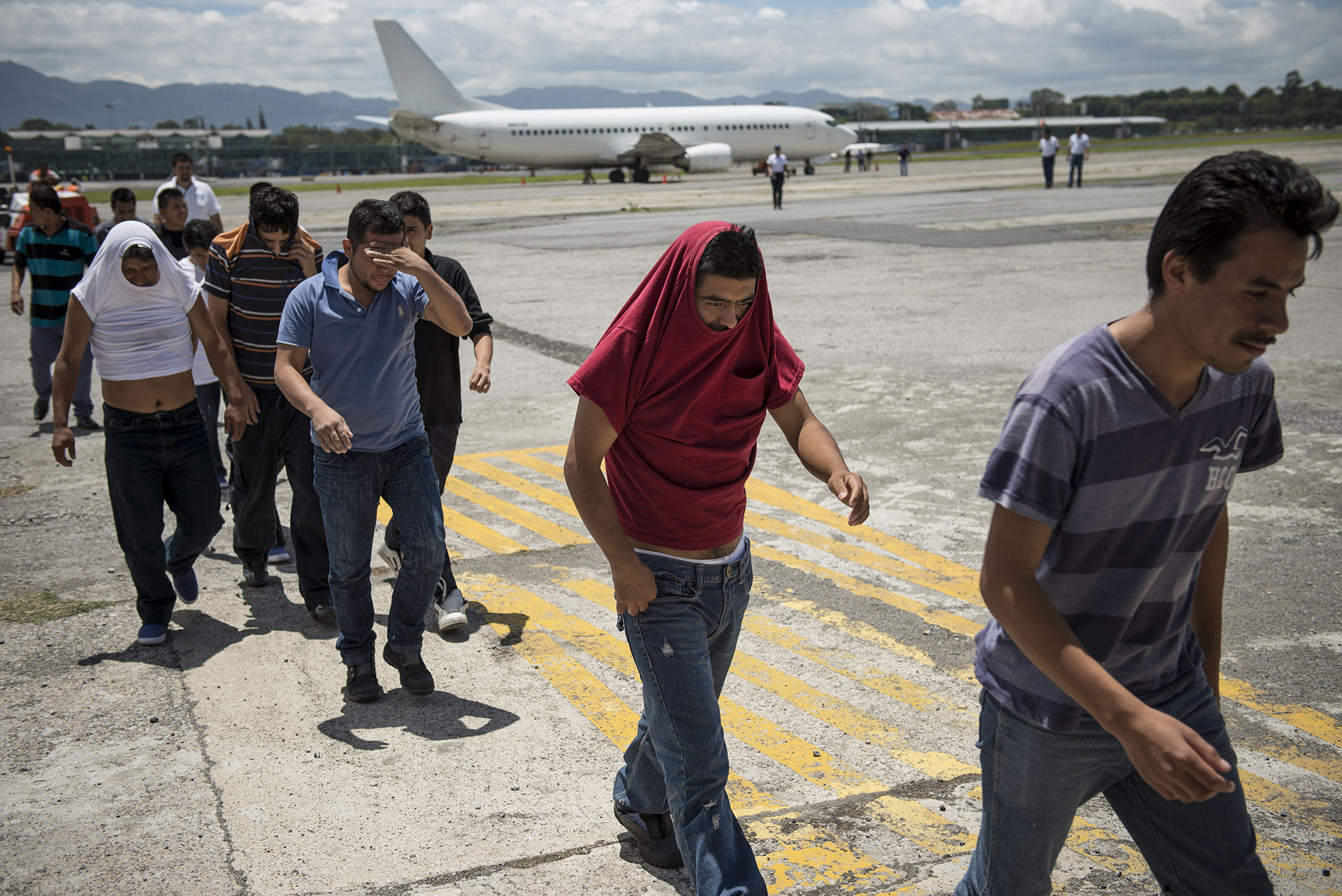Every day, Corona Plaza in Queens becomes a bustling food mecca serving hungry visitors and working-class immigrant communities alike. Nearly a hundred food vendors usually crowd the small plaza transforming it into an eclectic, informal market simmering with the aroma of juicy tacos de birria and cheesy arepas de queso. The vendors seem synchronized to the rhythms of Mexican Grupero or Caribbean Salsa music that reverberates throughout the square.
Also Read: Street Vendors Fight for Public Space Outside Hudson Yards
But on a recent Saturday afternoon, the plaza was nearly silent with only the thunderous sounds of the 7 train serving as its soundtrack. On July 27, two days earlier, the Department of Sanitation Police launched a crackdown on unlicensed vendors in Corona Plaza, essentially putting its immigrant vendors out of business.
The vendors have now organized a 24-hour occupation of the plaza demanding that the city stop the crackdowns, work with the vendors to formalize the informal market, and expedite the vendor permitting process. Rotating between six-hour shifts, the vendors have dug in their heels for the long haul.
The vendors in March formed the Corona Plaza Street Vendors Association, or AVA. They say they have been in talks with the city since April to develop a plan that could formalize their market but say the city has dragged its feet on following through. Most of the vendors agree that operations at the plaza need to change, but they want a seat at the table to make things better instead of being kicked out altogether.
AVA President Rosario Troncoso has sold apparel at Corona Plaza for three years. She and her daughter began vending on the plaza after she lost her job as an office cleaner during the pandemic. Since being removed in late July, she said her financial situation has gotten difficult.
“It’s harder to make ends meet,” she said. “Whatever little I save now I have to use it to pay my bills.”
Although Troncoso has operated without a permit, she is asking that the city help her instead of criminalizing her and her compañeros.
“What would be a solution is a general permit for all the vendors who have been working in the plaza or a vendor agreement that the city has already discussed with us months ago,” she said.
AVA Vice President Maria Calle, a veteran vendor of 10 years who specializes in ceviche de chochos, a popular Ecuadorian street food, also plans to spend as many nights as she can in the plaza. Although Calle is aware that not all vendors follow the rules, she believes a more formal structure in which the vendors are able to partially regulate themselves would help keep everyone in check.
“If we are able to accomplish what we were demanding, a lot of the compañeros in the association would follow the rules because they would have something concrete and suitable,” she said.
Carina Kaufman-Gutierrez, deputy director of the Street Vendor project, has been working closely with AVA to help them get organized. She said part of the problem has been navigating the web of agencies that have oversight over vendor enforcement. Although they have been in talks with the city Department of Transportation to formalize the Corona Plaza market for several months, the NYPD and Sanitation Department have only doubled down on enforcement.
“There’s a lot of disconnect between city agencies,”siad Gutierrez. “Nobody is saying don’t get regulations, but we need some support from the city.”
Responding to Documented’s request for comment, Vincent Gragnani, press secretary for the Department of Sanitation, stated that their enforcement was limited.
“As part of the Adams administration’s commitment to the health, safety, accessibility, and cleanliness of our streets, the Department of Sanitation engaged in vending inspections and limited enforcement in Corona Plaza on July 26 and 27,” he said. “This is a location where recent visits showed significant issues with cleanliness and pedestrian access.”
Yet on the following Saturday, all but a few vendors were gone. Sanitation police remained on site as a deterrent to any vendor who attempted to return. Many had relocated to the surrounding area, placing hand-made signs on lampposts advertising their new locations.
Since the crackdown, AVA has collected 5,156 signatures on a petition supporting their cause. The majority of the signatures came from Corona residents.
Camped out with several other vendors, Troncoso has packed a large cooler filled with food and refreshments. She has no plans of leaving anytime soon.
“We are going to be heard as long as we can and as long as we stick together.”














